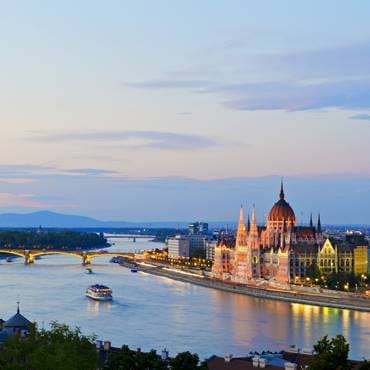
Austria
Austria is a land-locked country in Central Europe, composed of nine federated states (Bundesländer), one of which is Vienna, Austria's capital and largest city.
It has a rich archaeological history. In 200 BC, the Romans arrived and by 15 BC they had dominated the entire area. The most significant Roman settlement in Austria was Carnuntum (capital of the Roman province of Pannonia in today’s Lower Austria), which became the centre of the Roman fortifications along the Danube. By the latter half of the 2nd century AD, various German tribes were extending their territory by making devastating incursions into Roman territories. By the mid-500s, the Bavarians controlled the territory between the eastern Alps and the Wienerwald region. In around 800, Charlemagne, the king of Franks and eventually Holy Roman Emperor, established a territory in the Danube valley known as the Ostmark (Eastern March). In 996 the Ostmark was first referred to as "Ostarrichi", a clear forerunner of the modern German word "Österreich".
Eventually, Austria started serving as the heart of the Habsburg Monarchy and the junior branch of the House of Habsburg – one of the most influential royal dynasties in history. As an archduchy, it was a major component and administrative centre of the Holy Roman Empire. Following the Holy Roman Empire's dissolution, Austria established its own empire in the 19th century, which became a great power and the leading force of the German Confederation. Austria’s history into 19th century was complex and troubled. But today, Austria is a parliamentary representative democracy, with a President as head of state and a Chancellor as head of the federal government. It is a member of NATO and Europe. Austria's past as a European power and its cultural environment has offered a broad contribution to various forms of art, most notably among them music. Austria was the birthplace of many famous composers such as Franz Liszt, Franz Schubert, Johann Strauss, Senior, and Johann Strauss Junior, and Wolfgang Amadeus Mozart was also born in Salzburg. There are so many wonderful reasons to visit Austria.
 GB
GB
 US
US



